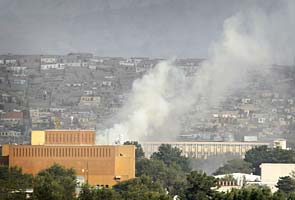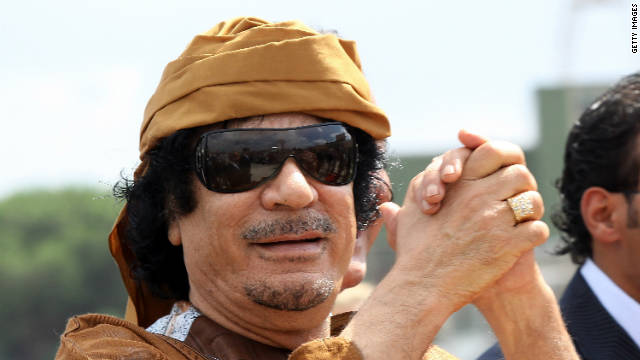
The recent attack on its embassy in Kabul, says US,
crossed all limits.
crossed all limits.
Washington: The US
confronted Pakistan with "concrete evidences" of links between the ISI
and extremist organisations like the Haqqani network and LeT, before it
launched a frontal attack on the spy agency for its terror ties,
Pentagon officials have said.
"They (ISI) provide financial support (to extremist organisations). It provides technical support. It provides physical support. They (Pak officials) are allowing the safe heavens to operate," a defence official told PTI on condition of anonymity as he is not authorised to speak to the media.
Another defence department official said that Pentagon has been providing such evidences to Pakistan "since ages" but it is only after the recent attack on a hotel in Kabul and the US Embassy in Kabul that this crossed all limits and the Defence Department decided to go public.
But the senior defence official maintained that these evidences gives concrete proof of the relationship between ISI and the extremist organisations including Haqqani network and LeT.
The senior defence official familiar with it refused from giving further details of the type of evidences that the US has provided to Pakistan, based on which Admiral Mike Mullen, Chairman of the Joint Chiefs of Staff, told a key Congressional committee, last week that the Haqqani network "acts as a veritable arm" of Pakistan's ISI.
Officials said Mullen shared his thoughts and text of his remarks with Defence Secretary Leon Panetta, before he went to make such a strong comment against Pakistan in a public hearing before the Senate Armed Services Committee.
"They (ISI) provide financial support (to extremist organisations). It provides technical support. It provides physical support. They (Pak officials) are allowing the safe heavens to operate," a defence official told PTI on condition of anonymity as he is not authorised to speak to the media.
Another defence department official said that Pentagon has been providing such evidences to Pakistan "since ages" but it is only after the recent attack on a hotel in Kabul and the US Embassy in Kabul that this crossed all limits and the Defence Department decided to go public.
But the senior defence official maintained that these evidences gives concrete proof of the relationship between ISI and the extremist organisations including Haqqani network and LeT.
The senior defence official familiar with it refused from giving further details of the type of evidences that the US has provided to Pakistan, based on which Admiral Mike Mullen, Chairman of the Joint Chiefs of Staff, told a key Congressional committee, last week that the Haqqani network "acts as a veritable arm" of Pakistan's ISI.
Officials said Mullen shared his thoughts and text of his remarks with Defence Secretary Leon Panetta, before he went to make such a strong comment against Pakistan in a public hearing before the Senate Armed Services Committee.
















 Dalam
dokumen yang ditandatanganinya petang ini di hadapan pesuruhjaya sumpah
di Mahkamah Tinggi Kuala Lumpur, Anwar berkata, Datuk Seri Najib Razak
dan Datin Seri Rosmah Mansor diperlukan untuk membantu kes berkenaan.
Dalam
dokumen yang ditandatanganinya petang ini di hadapan pesuruhjaya sumpah
di Mahkamah Tinggi Kuala Lumpur, Anwar berkata, Datuk Seri Najib Razak
dan Datin Seri Rosmah Mansor diperlukan untuk membantu kes berkenaan. “Oleh
yang demikian, saya percaya terdapat banyak lagi perkara yang telahpun
dibincangkan antara pemohon dan pengadu tersebut semasa pertemuan
tersebut yang saya yakin adalah relevan dan materrial kepada pembelaan
saya,” katanya dalam afidavit itu.
“Oleh
yang demikian, saya percaya terdapat banyak lagi perkara yang telahpun
dibincangkan antara pemohon dan pengadu tersebut semasa pertemuan
tersebut yang saya yakin adalah relevan dan materrial kepada pembelaan
saya,” katanya dalam afidavit itu.